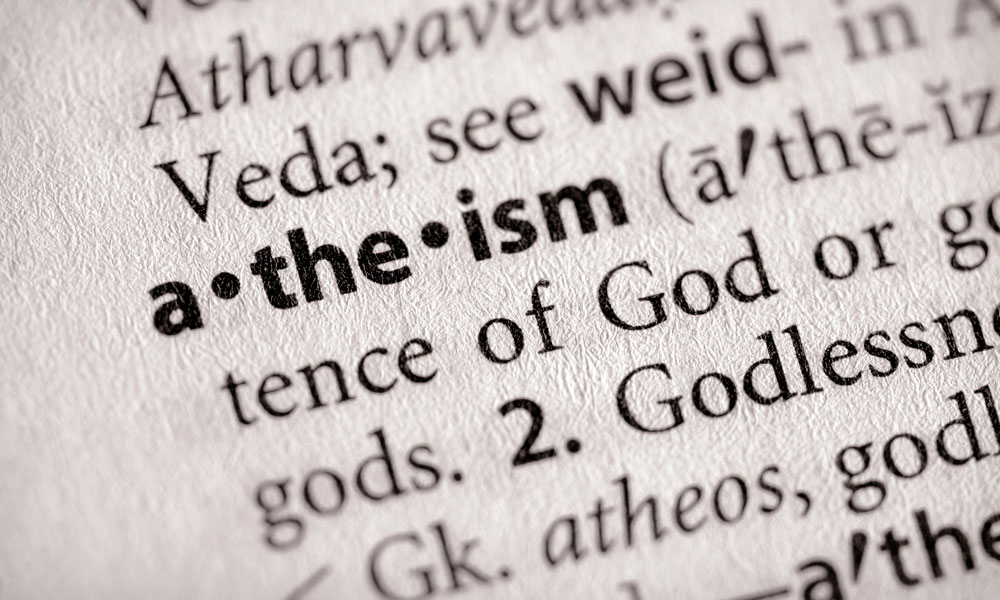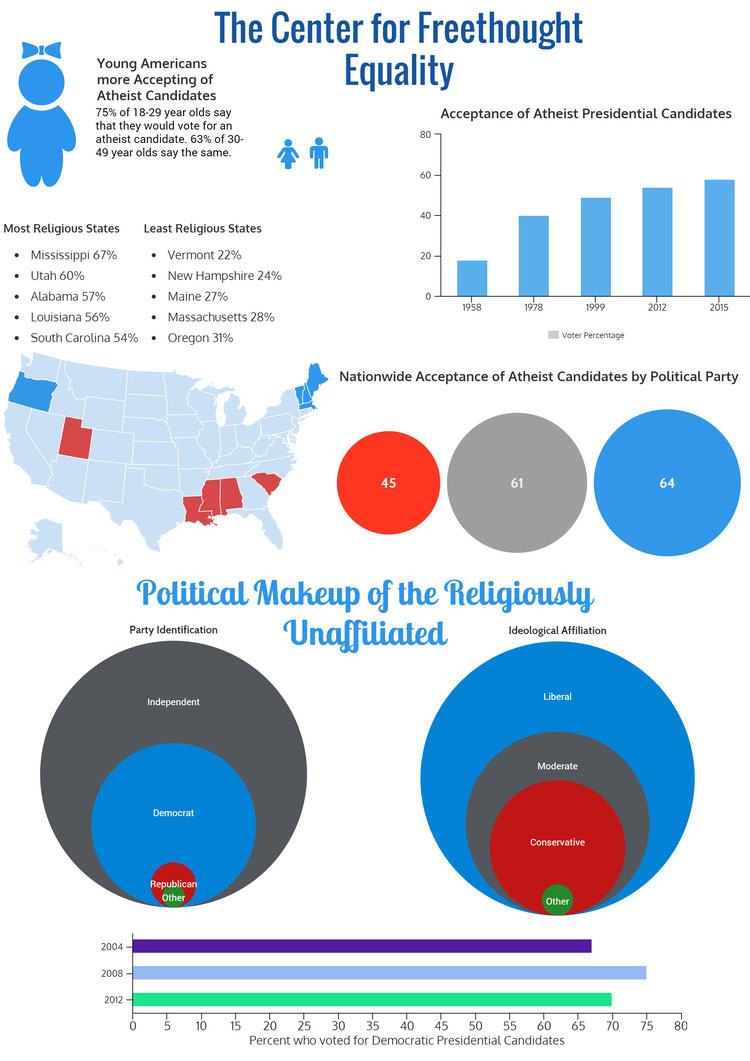
Secular Groups Play Up Political Clout of “Nones”
In an era when religion remains an important litmus test for many presidential candidates, a number of groups affiliated with nonreligious and secular movements have been emphasizing that atheists, agnostics, and other nonreligious audiences shouldn't be ignored, either.
The 2016 election season has been one in which the issue of religion has often been front and center. But an emerging segment of the population—one known for a lack of religion—wants to remind the candidates that it’s a force to be reckoned with, too.
The “Nones,” a broadly reaching group of atheists, agnostics, and those unaffiliated with a specific faith, make up nearly a quarter of the U.S. population, according to a 2014 Pew Research Center survey. Groups such as the American Humanist Association, which advocates for civil liberties and secular governance and represents the philosophical idea that ethical people can contribute to the greater good without believing in a particular god or faith, have attempted to leverage the movement from a political perspective.
“This is the pivotal time for the nontheist camp to rise up and have their voices heard,” AHA Executive Director Roy Speckhardt told the Houston Chronicle.
The Center for Freethought Equality, the political arm of AHA, has spoken up in recent years about political candidates who have criticized atheists, as well as about states that are most welcoming to those who aren’t religious. The group invested six figures in advocacy during the 2014 midterm elections, Speckhardt told the Chronicle.

According to the Center for Freethought Equality, nonreligious people, while not of a single political mindset, tend to lean more liberal in politics and independent in party affiliation. The Northeastern and Northwestern regions of the country tend to be least religious, while the Deep South and Utah are most consistently religious.
So who stands out among the presidential candidates? Speckhardt told the Huffington Post in January that Bernie Sanders’ take on religious issues is particularly welcoming to nontheists.
“Sanders defines God in a very different way than the way most Americans do, and in fact, a way that would be compatible with nontheistic humanists,” Speckhardt told the Post, adding that the Vermont senator has rarely spoken of God in “supernatural” terms.
One challenge for secular groups is that political candidates often take stances that directly oppose their personal views. According to Larry Decker, executive director of the Secular Coalition for America, the nonsecular movement supports the protection of freedoms for all people; the concept of equal protection under the law; a foundation of knowledge, science, and reason; and an acceptance of all faiths, including nontheism.
“These are the values unifying our movement. These are the values I believe our country was founded on,” Decker told the Chronicle. “We would juxtapose them to the values of the religious right.”
(iStock/Thinkstock)






Comments